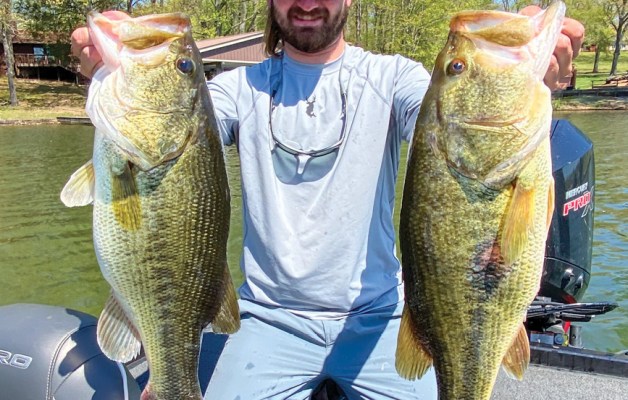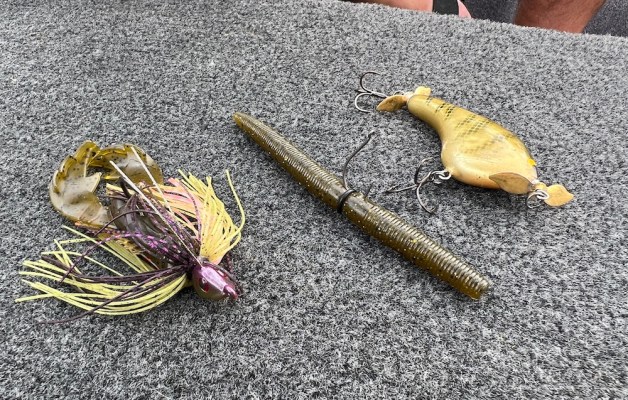
Traveling is often one of the most expensive parts of a fishing trip. Food, lodging, gas and special lures can eat into your budget without mercy. It doesn’t have to be that way, however. As a professional angler who came up through the ranks, I’ve learned a few dos and don’ts when it comes to saving money on the road. Here are five of them:
1. Don’t buy at convenience stores
Drinks, food and snacks are expensive. I purchase mine at grocery stores or discount outlets like Sam’s and Costco. You can buy a whole case of bottled water or pop for what a half-dozen bottles will cost you at the gas station. The same is true for almost every food or beverage item you’ll ever need. On top of that, you can buy what suits your fancy, not what someone else passed over.
To do this effectively, you need to plan. Make a list of what you’ll need. Buy everything you need in one trip — that saves gas — and make sure you check expiration dates. If some items need to be kept cold, put them on ice in a cooler.
2. Bring along your own food
Restaurants are expensive. They’re also a pain after you’ve spent 12 or 14 hours on the water. Take frozen food from home on your next trip. My wife often cooks chicken breasts or individual meatloaf slices before I travel. We freeze each item individually and then store them in a cooler. They’ll stay good for a long time that way.
When I get to where I going, I nuke them in the microwave and eat them for supper. In my case that’s in my camper, but even if you’re staying in a motel they likely have a microwave in the room. Use it. This not only saves money and time, but it tastes better, too.
A quick and inexpensive lunch can be had with a pound of bologna, a few slices of cheese, a loaf of bread and a little mustard. You can eat lunch all week for about the same amount you’d spend for one or two meals in a restaurant.
3. Don’t buy gas on the interstate
Unless I’m on empty — and that’s the result of poor planning on my part — I never buy gas on the interstate. It’s guaranteed to be more expensive — sometimes as much as 30 cents a gallon more than other stations or even more than that.
Use your GPS to find cheaper gas a couple of miles off the ramp. If there’s a big discount store nearby, go to it. Not only are they less expensive, but so are the gas stations around them.
4. Compare motels
Check around before you rent a motel room. Sometimes local places have fisherman’s specials or weekly rates. You’d be surprised at how much money you’ll save doing that. And always check to see if they offer a free breakfast. That’s no small thing. It can save you $10 or so every day.
Don’t forget to ask about discounts. BASS, AARP, AAA and any number of other organizations have discount contracts for their members. Take advantage of them.
5. Buy tackle before you leave
The most expensive place in the world to buy fishing tackle is at the dock. Do some research before your trip, and buy what you need in advance.
The Internet is usually the best place to start. There are several big sites that’ll serve your needs. My favorite is BassTackleDepot.com. They often have huge discounts and sometimes free shipping. Take advantage of that.
Along with cost savings you’ll be able to get exactly what you want, as opposed to what’s left. This is especially important if you’re looking for a popular lure, such as a Strike King Pro-Model Series 5 crankbait in Sexy Shad.
If you need line, make sure you buy it in bulk. It’s much cheaper that way; sometimes half-price. If you keep it out of the heat and the sun, it’ll last you for years, especially if you purchase a quality line like Sunline. Besides, if you have a lot of line you’re more likely to change it when you should.
Each of these tips may seem small by itself. Taken as a whole, however, they’ll save you a huge amount of money — money you can save for a rainy day, spend on your family or use to go on another fishing trip.
There’s no shame in being frugal.




